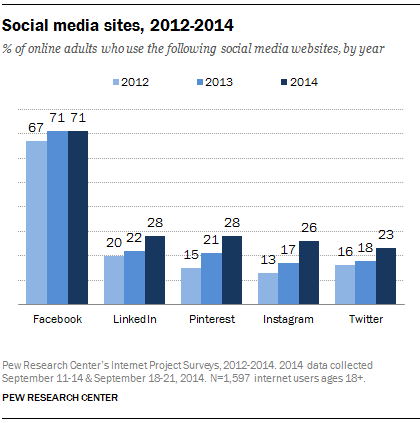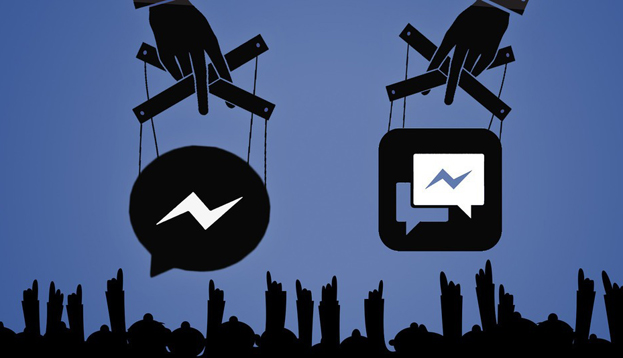Facebook’s lofty push to introduce Messenger as a standalone app seems like an unqualified success at first glance, as ComScore‘s mobile app data report for November 2014 shows Messenger with a staggering 69 percent reach amongst all American smartphone users.

The news is clear: People love Facebook‘s messaging service. That love, however, appears to come at the expense of the Facebook core app’s market share.
A Pew Research Center report released today shows Facebook in first place amongst all social networks in the United States, but with significantly slowed growth relative to years past. Meanwhile, 52 percent of online adults use two or more social networks, up from 42 percent a year earlier, allowing competitors like LinkedIn, Pinterest, and Twitter to grow at their expense.
Facebook’s acquisition of Instagram appears to be doing well to blunt public perception that the social giant has lost its “cool” factor with younger consumers, as Instagram is still extremely popular with young adults; 49 percent of all 18-29 year old Internet users say they use it at least once a day.
The migration away from Facebook’s core app likely stems in large part from their decision to require smartphone users to download Messenger if they wanted to continue using chat, a move that compelled many to abandon the core app entirely even as they embraced Messenger as a standalone app.
The challenge for Facebook now, it would seem, is whether they can compel Americans to have the same sort of enduring relationship with Messenger that Japanese audiences have with Line or Chinese consumers have with Tencent’s QQ. If they are successful, Facebook — Messenger and all — might become a bigger hit with users and engagement-enamored marketers than ever before.


